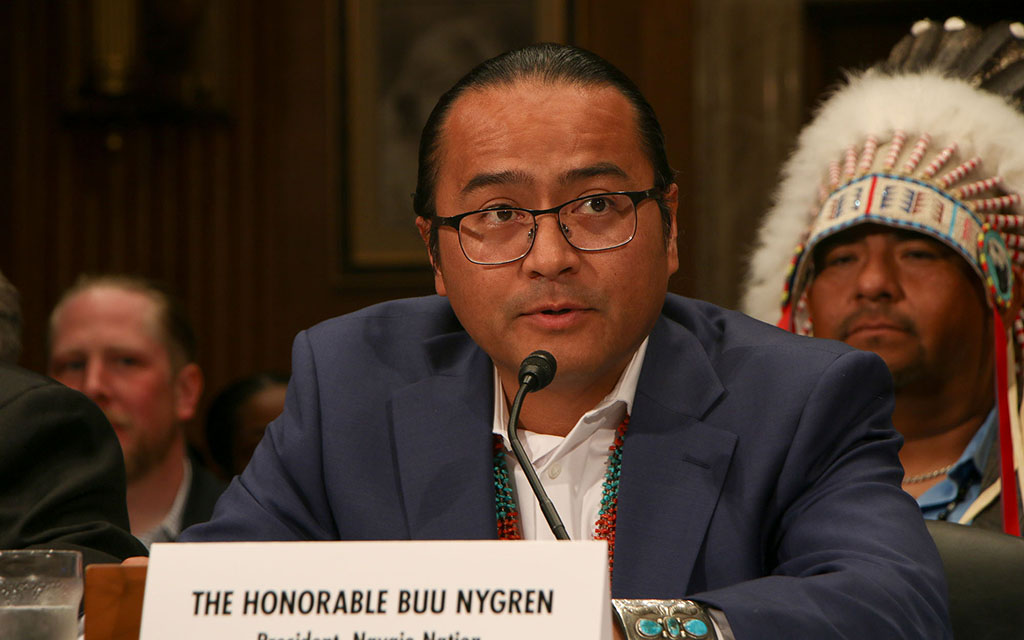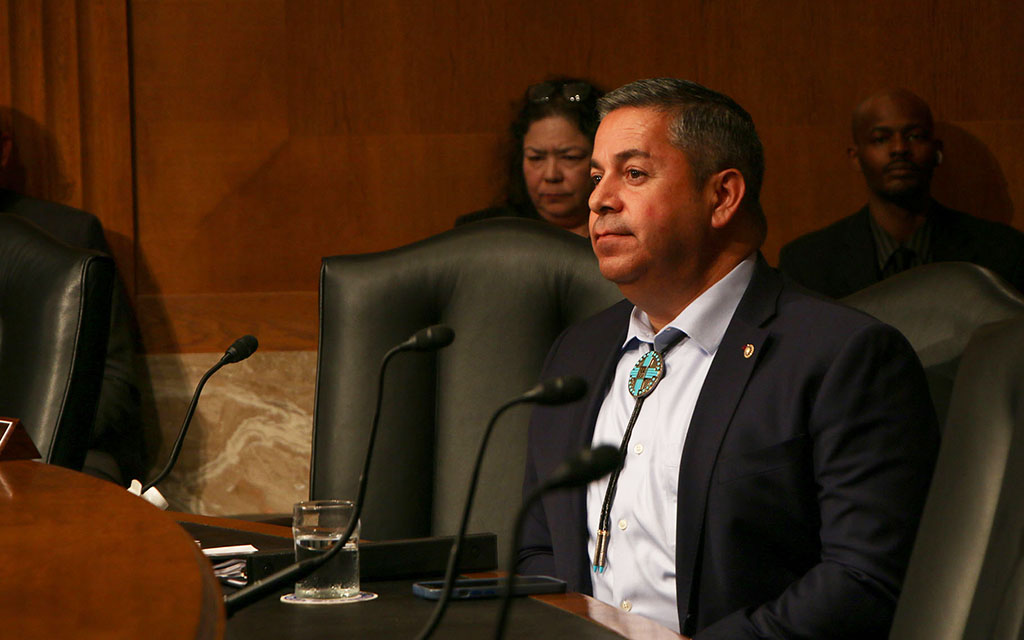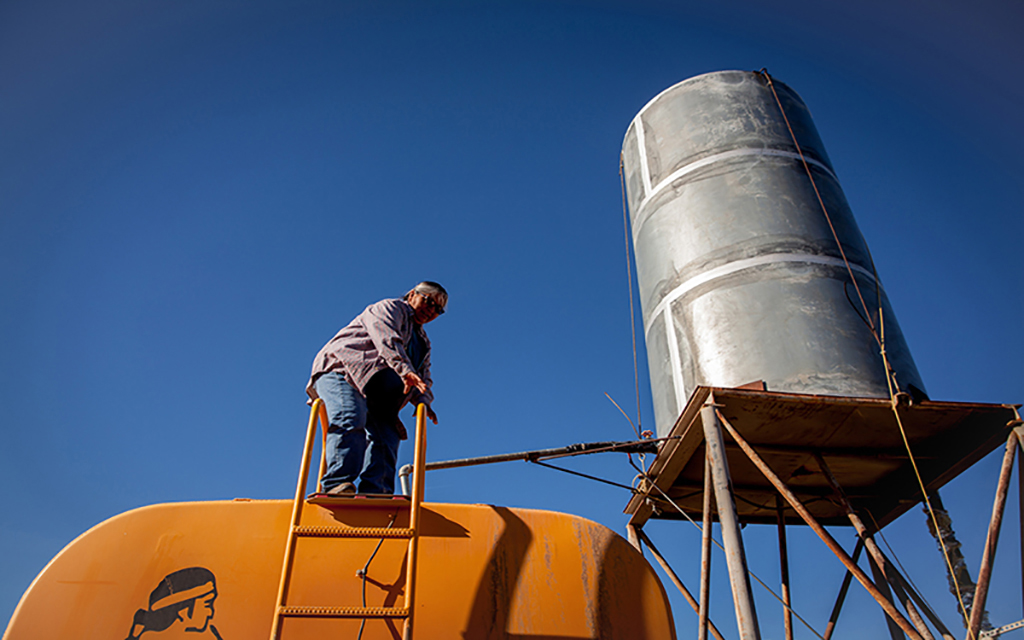
Navajo Nation President Buu Nygren told the Senate Indian Affairs Committee that technical problems, supply chain issues and pandemic delays have slowed progress on the Navajo-Gallup water supply project and increased its cost. (Photo by Lillie Boudreaux/Cronkite News)
WASHINGTON – Navajo Nation President Buu Nygren asked senators Wednesday for more funding, and time, for a pipeline project that would create a reliable water supply for 250,000 people across Arizona and New Mexico.
The project would deliver 37,767 acre-feet of water annually from the San Juan River basin through 300 miles of pipeline to 43 Navajo chapters, the city of Gallup, New Mexico, as well as the Teepee Junction area of the Jicarilla Apache Nation.
“This project not only benefits Navajo people, but it benefits the local communities like Gallup and the areas in western New Mexico. It benefits a lot of people, and the water is highly needed,” Nygren said before a hearing of the Senate Indian Affairs Committee.
Nygren was there to testify in support of the Navajo-Gallup Water Supply Project Amendments Act of 2023, which would amend a 2009 bill that created the framework and identified the funding for the water project.
But that agreement is set to expire at the end of next year, while the project is still years away from completion. The bill under consideration now would extend the agreement through 2029, when the Bureau of Reclamation estimates the project will be finished. It would also raise the budget cap for the project by 150%, from the original cost estimate of $870 million to $2.175 billion.
Nygren said the project has been hindered by engineering challenges, COVID-19 restrictions and supply chain issues, and ongoing inflation.
“Initially, when this project was talked about in 2009, it was at a certain dollar amount, but since costs of construction and inflation and all sorts of stuff has happened since 2009, the cost is a lot more expensive,” Nygren said. “If they can fund it, it’ll help a lot of people.”
Assistant Interior Secretary of Indian Affairs Bryan Newland said the department supports the changes to the bill. He told the Senate Indian Affairs Committee that construction will stop without the extension and increased funding.
The sponsor of the bill, Sen. Ben Ray Luján, D-N.M., said the changes “must be signed in to law by this Congress to ensure that the Navajo-Gallup supply project that began in 2009 does not grind to a halt.”
“Once completed, the project will help close this water gap and provide a more sustainable supply that will improve public health and economic opportunities for the region,” Luján said in opening remarks to the hearing.
Besides pipelines to deliver the water, the project also calls for the construction of two water treatment plants and 19 pumping plants.
One pipeline in the project, the Cutter Lateral, was completed in 2020 and began delivering water to approximately 6,000 people as of 2021, according to the Bureau of Reclamation. The second pipeline, the San Juan Lateral, has more than 267 miles built or under contract as of last year, with another 33 miles left to be designed.
The areas that would be served by the project currently rely on poor-quality groundwater, that is depleting rapidly, with residents often forced to haul water from nearby cities. As the region’s drought worsens and groundwater levels drop, the need for a reliable water supply grows more dire.

Sen. Ben Ray Luján, D-N.M., said changes to the Navajo-Gallup water project must be approved or it could “grind to a halt.” (Photo by Lillie Boudreaux/Cronkite News)
“I think that it’s really made it tough for our people to stop worrying about basic essentials of life and if we can cover those basic necessities and we can start moving forward to building ourselves up even stronger,” Nygren said of the need for the project.
He said 30% of Navajo households lack running water.
“Still to this day we have Navajo people that are just like myself, even though I’m only 36 years old, hauled water, drank windmill water that is supposed to be for livestock. And I know a lot of our people are still doing that as of today,” he said.
Nygren said that the additional time in the bill “gives us enough time to actually finish it, complete it and turn it over and get the water turned on so Navajos can start having the water that they need.”

